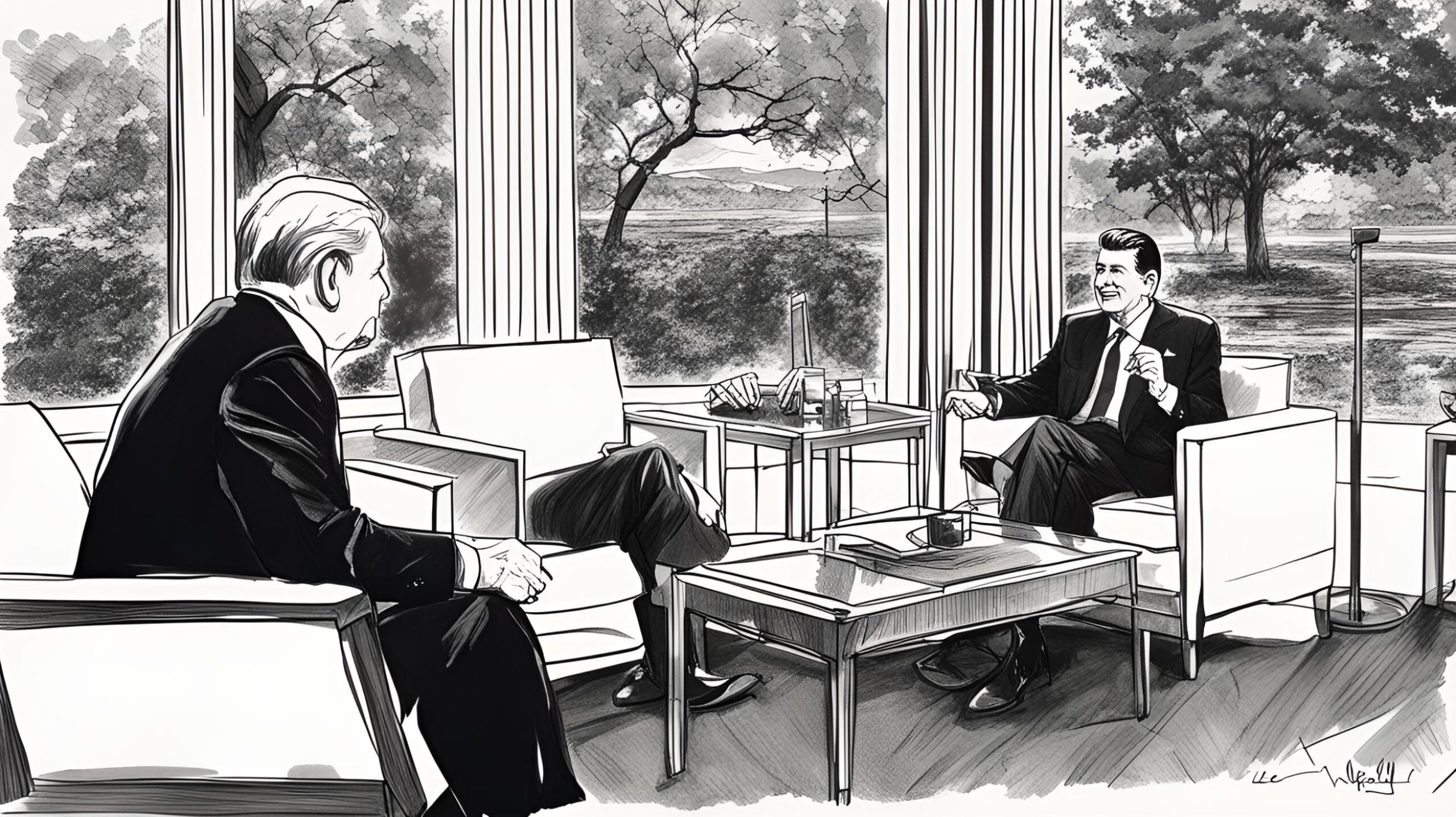Flashback to July 8
World History

1985
In Geneva, Switzerland, US President Ronald Reagan and Soviet leader Mikhail Gorbachev meet for the first time
Read moreWhen monumental history-making events transpire, they indelibly etch their mark on global consciousness and social evolution. Such was the case when US President Ronald Reagan and Soviet Leader Mikhail Gorbachev first convened in the tranquil city of Geneva, Switzerland. This significant event took place on November 19, 1985, during the height of the Cold War, marking a turning point in US-Soviet relations and dramatically influencing the trajectory of international politics.
The meeting between Reagan and Gorbachev wasn’t just an ordinary diplomatic assembly. Rather, it was a shift of epic proportions that dramatically altered the United States’ and Soviet Union’s ideologies and the global discourse on nuclear disarmament. Set against the picturesque backdrop of Geneva, Switzerland — a city synonymous with diplomacy — this historic gathering reverberated throughout the world, echoing with far-reaching implications and subtly shifting the dynamics of world power.
Hosted amidst escalated tensions, the first meeting between President Reagan and Leader Gorbachev was a symbol of hope against the backdrop of a global power struggle. The US and the Soviet Union had been at loggerheads for decades, with growing nuclear arms concerns further fueling the fire. The Geneva meeting was viewed as an initial step towards de-escalating tensions and setting in motion a series of events that would eventually culminate in the end of the Cold War.
One of the key talking points during the Reagan-Gorbachev meeting in Geneva was nuclear arms control. Reagan, a staunch anti-communist, had focused his initial terms on strengthening US military forces. However, the meeting marked a shift in focus towards achieving nuclear disarmament. Reagan’s famous “Trust but verify” remark served as a guiding principle for the US’s stance on nuclear disarmament during these discussions.
Gorbachev, on the other hand, was an advocate of “glasnost and perestroika” – openness and restructuring. He desired to transform the Soviet Union’s stagnant economy and reduce the arms race’s burden and expenditure. The Geneva meeting became a platform for these aspirations, allowing Gorbachev to take first steps toward decreasing the country’s military presence and at the same diverting the economy’s focus from defense to development.
The Geneva rendezvous also played a pivotal role in setting the stage for subsequent summits between the USA and the USSR. These meetings, stretching across locales like Reykjavík, Washington, Moscow, and New York, refined and reinforced the premise set during the initial Geneva discussion. Gradually, the aggressive enmity between the two superpowers began to thaw, opening doors to improved relations and the eventual dissolution of the USSR.
Indeed, the event of November 19, 1985, in Geneva, Switzerland, was more than just a meeting between two leaders. It was an event that marked the advent of a remarkable shift in global political dynamics. The Reagan-Gorbachev meetup signaled the beginning of an era of enhanced dialogue and decreased hostility between two Cold War adversaries. The world watched with bated breath as these two leaders navigated diplomatic challenges and paved the way for a new order in international relations.
While tangible outcomes, such as arms treaties, did not immediately succeed this meeting, it’s impossible to deny the psychological impact it had, signaling a shift from confrontation to negotiation. It is in this light that the Reagan-Gorbachev meeting in Geneva, Switzerland, should be remembered—a historic moment where dialogue and diplomacy triumphed over hostility and conflict.
We strive for accuracy. If you see something that doesn't look right, click here to contact us!
Sponsored Content

King Charles XV /…
On 7/8/1859, King Charles…

Great Northern War: Battle…
On 7/8/1716, the Battle…

French and Indian War:…
On July 8, 1760,…

Sudan Airways Flight 39,…
On July 8, 2003,…

King Charles II of…
On July 8, 1663,…

French and Indian War:…
On July 8, 1758,…

